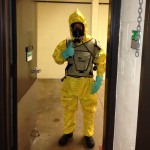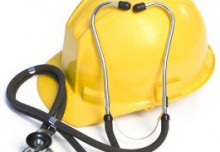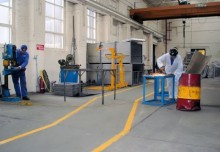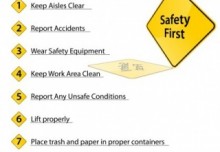 Ways to become a Safety Professional
Ways to become a Safety Professional
Sometimes we know what we want to be early in life. We go to college with a particular goal in mind. Over the last several decades, colleges and universities are offering college degrees in the safety field. These degrees include the broad based Bachelor or Masters in Occupational Safety and Health. Safety degrees can be obtained by either attending traditional brick and mortar schools or attend online. But what if you already have a degree in a different field? Is it a requirement to have a degree in Safety in order to be a safety professional? The quick answer is no.
These days there are many professionals that have advanced degrees but do not have jobs in the field for which they have their degree. There are several professional certifications that can be obtained that will show competence and knowledge in the safety field. One of the highest professional certifications is the Certified Safety Professional, or CSP. This professional designation is awarded by the Board of Safety Professionals (BCSP). The CSP certification marks individuals who have met educational and experience standards and passed rigorous examinations validated against the practice of hundreds of safety professionals. Advertisements for safety professionals published in Professional Safety, the American Society of Safety Engineers’ (ASSE) journal, often identify the CSP certification as a desired or required qualification along with education and experience. Over 50% of all safety position ads within the last few years identified the CSP credential. In 2009, BCSP found the average CSP earned $99,447 annually and that the median salary of those holding the CSP was $85,000. The CSP designation can be helpful in many industries such as Chemical Manufacturing, Construction, Insurance and Fabrication. Some of the job titles associated with these industries include Safety Manager, Safety Director, Vice President of Safety and Safety Professional. (Website: http://www.bcsp.org/)
Other professional designations include:
Certified Safety and Health Manager (CSHM) – Through its certification program, the Institute for Safety and Health Management (ISHM) promotes the advancement of safety management through the application of management principles and the integration of safety into all levels and activities of an organization. The CSHM program recognizes the safety and health professionals who demonstrate knowledge of health and safety management skills and techniques through examination and experience. The CSHM designation can be helpful in many industries such as Chemical Manufacturing, Construction, Insurance, Warehousing and Fabrication. Some of the job titles associated with these industries include Safety Manager, Safety Director, Health and Safety Manager and Safety Professional. https://www.ishm.org/certified-safety-and-health-manager-cshm-certification
Certified Hazardous Materials Manager (CHMM) – The Certified Hazardous Materials Manager® (CHMM®) credential is the standard of excellence within the hazardous materials management community. The CHMM® program was created in 1984 by the Institute of Hazardous Materials Management (IHMM) to identify professionals possessing a superior body of knowledge and expertise. The CHMM® designation demonstrates a professional’s competency and commitment to technical excellence through continuing education, training and successful completion of a rigorous examination. The CHMM designation can be helpful in many industries such as Chemical Manufacturing, Construction, Insurance and Environmental Consulting. Some of the job titles associated with these industries include Safety Manager, Environmental Engineer, Environmental Health and Safety Manager (EHS) and Safety Professional. http://www.ihmm.org/certificants/chmm
Construction Health and Safety Technician (CHST) -The Construction Health and Safety Technician (CHST) certification is designed for individuals who demonstrate competency and work part-time or full-time in health and safety activities devoted to the prevention of construction illnesses and injuries. The CHST certification meets national standards for certifications. Candidates for the CHST certification are typically employed as safety and health specialists on construction job sites, serving in either full-time or part-time positions. Typical individuals are responsible for safety and health on one or more significant construction projects or job sites. They may work for an owner, general contractor, subcontractor, or firm involved in construction or construction safety. Some of the job titles associated with these industries include Site Safety Manager, Safety Director, and Safety Professional. http://www.bcsp.org/CHST
These professional designations demonstrate a professional’s competency and commitment to technical excellence through continuing education, training and successful completion of a rigorous examination. These certifications have education and experience requirements that need to be met prior to challenging the written tests. These certifications along with non-safety related college degree shows that the basic knowledge has been obtained. But do I need to have one of these certifications in order to be a safety professional? The quick answer is no.
Safety professionals have had very successful careers by having worked their way up in a company. They started out with no intention to be a safety professional. They developed a desire to become a safety professional or was in the “right place and the right time”. Some may have initially said jokingly “the wrong place at the wrong time”. Sometimes due to our relationships or life experiences, being a safety professional is a natural fit. This business is all about helping people.
So what makes a successful safety professional? Being a safety professional is a noble and just profession, but not for everyone. There are challenges and obstacles to overcome around every turn. With desire, knowledge and experience, the safety profession is rewarding.
Let us know if there are any questions we can answer for you. Email us at info@allrisktraining.com call us direct 773-313-3012 or leave a reply below.













